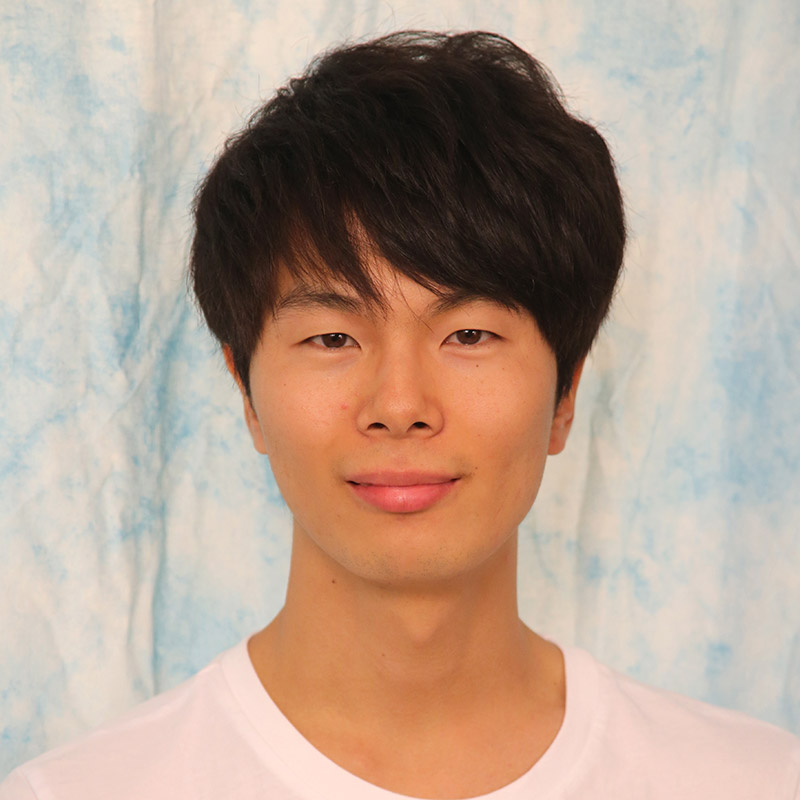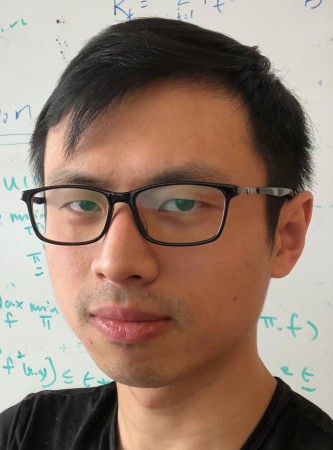PhD Thesis Defense
Carnegie Mellon University
Sensing, Measuring, and Modeling Social Signals in Nonverbal Communication
Abstract: Humans convey their thoughts, emotions, and intentions through a concert of social displays: voice, facial expressions, hand gestures, and body posture, collectively referred to as social signals. Despite advances in machine perception, machines are unable to discern the subtle and momentary nuances that carry so much of the information and context of human communication. [...]
Carnegie Mellon University
Optimal control of compliant bipedal gaits and their implementation on robot hardware
Abstract: Legged animals exhibit diverse locomotion patterns known as gaits, which are capable of robustly traversing terrains of variable grade, roughness, and compliance. Despite the success of legs in nature, wheeled solutions still dominate the field of robotics. State-of-the-art humanoid robots have not yet demonstrated locomotion behaviors that are as robust or varied as their [...]
Carnegie Mellon University
Design and Evaluation of Robust Control Methods for Robotic Transfemoral Prostheses
Abstract: Amputees face a number of gait deficits due to a lack of control and power from their mechanically-passive prostheses. Of crucial importance among these deficits are those related to balance, as falls and a fear of falling can cause an avoidance of activity that leads to further debilitation. In this thesis, we investigate the [...]
Carnegie Mellon University
Intra-Robot Replanning and Learning for Multi-Robot Teams in Complex Dynamic Domains
Abstract: In complex dynamic multi-robot domains, there is a set of individual robots that must coordinate together through a centralized planner that inevitably makes assumptions based on a model of the environment and the actions of the individual. Eventually, the individuals may encounter failures, because the centralized planner’s models of the states and actions are [...]
Carnegie Mellon University
Light Sheet Depth Imaging
Abstract: Once confined to industrial manufacturing facilities and research labs, robots are increasingly entering everyday life. As specialized robots are developed for tasks such as autonomous driving, package delivery, and aerial videography, there is a growing need for affordable depth sensing technology. Robots use sensors like scanning LIDAR, depth cameras, and passive stereo cameras to [...]
Carnegie Mellon University
Towards Generalization and Efficiency in Reinforcement Learning
Abstract: In classic supervised machine learning, a learning agent behaves as a passive observer: it receives examples from some external environment which it has no control over and then makes predictions. Reinforcement Learning (RL), on the other hand, is fundamentally interactive: an autonomous agent must learn how to behave in an unknown and possibly hostile [...]
Carnegie Mellon University
Planning under Uncertainty with Multiple Heuristics
Abstract: Many robotic tasks, such as mobile manipulation, often require interaction with unstructured environments and are subject to imperfect sensing and actuation. This brings substantial uncertainty into the problems. Reasoning under this uncertainty can provide higher level of robustness but is computationally significantly more challenging. More specifically, sequential decision making under motion and sensing uncertainty [...]
Carnegie Mellon University
Analysis of Spatio-Temporally Varying Features in Optical Coherence Tomographic (OCT) and Ultrasound (US) Image Sequences
Abstract: Optical Coherence Tomography (OCT) and Ultrasound (US) are non-ionizing and non-invasive imaging modalities that are clinically used to visualize anatomical structures in the body. OCT has been widely adopted in clinical ophthalmology due to its micron-scale resolution to visualize in-vivo structures of the eye. Ultra-High Frequency Ultrasound (UHFUS) captures images of tissue at a [...]
Carnegie Mellon University
Spatiotemporal Understanding of People Using Scenes, Objects, and Poses
Abstract: Humans are arguably one of the most important entities that AI systems would need to understand to be useful and ubiquitous. From autonomous cars observing pedestrians to assistive robots helping the elderly, a large part of this understanding is focused on recognizing human actions, and potentially, their intentions. Humans themselves are quite good at [...]
Carnegie Mellon University
Deep Non-Rigid Structure from Motion
Abstract: Non-Rigid Structure from Motion (NRSfM) refers to the problem of reconstructing cameras and the 3D point cloud of a non-rigid object from a sequence of images with 2D correspondences. Current NRSfM algorithms are mainly limited within two perspectives: (i) the number of images, and (ii) the type of shape variability they can handle. These [...]









